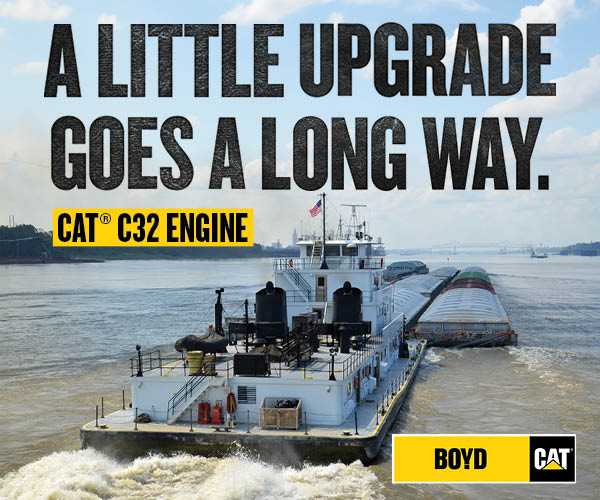Property Tax Appeals Can Help Barge Firms’ Bottom Line
By John Woolard
Due to gross excess capacity, U.S. inland barge operators are experiencing an industry-wide “perfect storm” resulting in diminishing volume per barge, a 40 percent decline in freight rates, 28 percent decline in revenue, and a 71 percent decline in operating income. In other words, this overhang is resulting in an out-of-balance supply/demand equation.
Based on all indications, 2018 will be an even more challenging year for the industry.
With an increase in pipeline capacity, a collapse in coal shipments, a challenging export market, and overall lowered freight rates, demand for barges is at a historically weak level. The result is more inland barges remaining idle for longer periods of time, making it difficult, if not impossible, for barge companies to turn a profit.
One often overlooked strategy for reducing operating cost in this challenging environment is negotiating and appealing property taxes.
Property taxes on barges and boats in Arkansas, Kentucky, Louisiana, Tennessee and Texas are based on the assessing authority’s determination of market value through the application of a depreciated cost approach model. Unfortunately, these valuation models do not incorporate adjustments for abnormal market conditions and often yield an excessive determination of value.
The good news is the assessor’s taxable value for boats and barges—and associated property tax liability—is negotiable.
Some of the critical issues that should be considered in relation to property tax reductions for inland barge operators include:
• negotiating the appropriate economic life of taxable components;
• quantifying the economic impairment as evidenced by excess market capacity, diminishing freight rates, revenue and operating income per barge;
• defining the functional obsolescence attributable to excess capital cost and excess operating cost;
• securing pollution control exemptions; and
• addressing taxability and taxable situs issues.
Abnormal depreciation in the form of functional or economic obsolescence can be determined through the application of several universally accepted appraisal techniques. Additionally, each state has unique opportunities for savings. For example, in Kentucky you can contest the allocation percent formula and in Tennessee you can negotiate the assessment ratio depending on type of product hauled.
These types of issues must be addressed each year to assure the lowest possible liability. In many cases, a successful appeal, coupled with available exemptions and other strategies, can yield annual property tax savings of 50 percent or more.
The key to successful property tax reductions for inland barge operators is a thorough knowledge of the unique issues affecting the market value of the subject property coupled with a technical knowledge of the assessor’s valuation process and the appropriate local or state property tax code. Combined with a comprehensive assessment analysis that measures abnormal obsolescence and is supported by documented market data, you will consistently secure significant property tax savings for your inland barge operation.
John Woolard, president of Industrial Property Tax Solutions, has over 35 years of experience specializing in helping industrial companies facing fixed asset obsolescence and overlooked exemption opportunities by delivering industry-leading tax savings ROI. For more information visit: www.IndustrialPTS.com.


